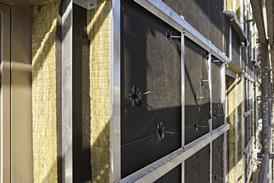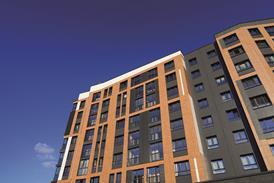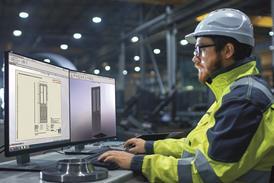John Weir, Wilson Connolly's design and marketing director, said: "In two years' time, over 90% of the units we produce will use timber frames manufactured off site. Frames built this way ensure quality and mean the shell of a unit can be put up quickly, speeding up the construction process." This expression of confidence comes after City rumours that Persimmon, which is taking over housebuilder Beazer, is planning to sell one of Beazer's timber-frame factories.
Wilcon added that prefabrication was "a logical move forward" because it would make revisions to the Building Regulations, including the energy efficiency rules in Part L, easier to implement.
More than 40% of the units sold by Wilcon last year used timber frames. Weir said this figure wold rise to 60% in 2001.
Chairman Allan Leighton dismissed other housebuilders' fears that customers were not ready for prefabrication.
He said factory methods helped the company to address buyers' main concerns, which included a problem-free new house, completion on time and increased choice.
Leighton, said: "Off-site construction may not be right for all builders – it might be wrong for Persimmon – but it is right for us and our profit margins are showing this." The company reported that pre-tax profit jumped 18% to £71m for the year to 31 December 2000; turnover increased 22% to £78m.
Leighton said the company's tenders would eventually be offered online through www.buildpack.com, Wilcon's internal ordering facility. Deputy chairman Lynn Wilson said the online builders merchant, which was set up last year, had already saved 25% in costs.
The group expects the initiative, which cost £600,000 to set up, to make a profit of £2m this year.
Leighton said the group had adopted a wait-and-see policy on the consolidation sweeping the housebuilding sector. "It's best to be there at the end of a consolidation round, not at the beginning," he said. "We don't want to stay small, but we want to be the best and that doesn't always mean bigger."






















